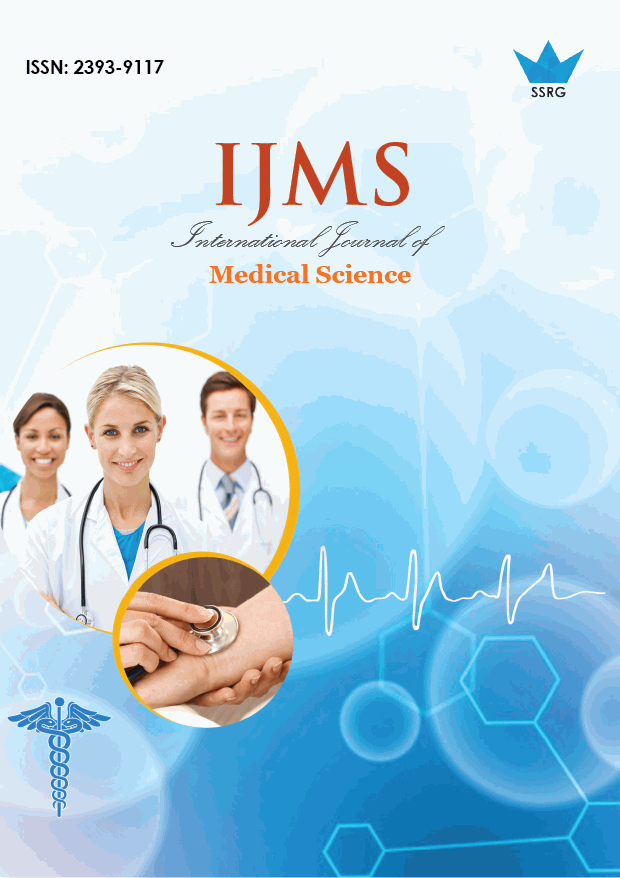Critical Review of Hypnosis from the Perspective of Modern Psychological Counseling

| International Journal of Medical Science |
| © 2023 by SSRG - IJMS Journal |
| Volume 10 Issue 6 |
| Year of Publication : 2023 |
| Authors : Shengyu Yang |
How to Cite?
Shengyu Yang, "Critical Review of Hypnosis from the Perspective of Modern Psychological Counseling," SSRG International Journal of Medical Science, vol. 10, no. 6, pp. 26-31, 2023. Crossref, https://doi.org/10.14445/23939117/IJMS-V10I6P104
Abstract:
This article provides a brief overview of the historical development of hypnosis, its related theories, and its branches. It explores the current conceptualization of hypnosis, delving into the manifestations under different hypnotic states. The paper analyzes the impact of hypnosis on individuals and discusses crucial factors influencing individuals' entry into a hypnotic state. In the final section, the article explores commonalities between hypnotherapy and traditional psychotherapeutic methods, highlighting the unique advantages of hypnosis. It is hoped that this comprehensive overview contributes to a better understanding and dissemination of knowledge related to hypnosis.
Keywords:
Psychological counseling, Hypnosis, Hypnotherapy.
References:
[1] Ciara C. Christensen, “Preferences for Descriptors of Hypnosis: A Brief Communication,” International Journal of Clinical and Experimental Hypnosis, vol. 53, no. 3, pp. 281-289, 2005.
[CrossRef] [Google Scholar] [Publisher Link]
[2] Milton H. Erickson, Sheila Isabelle Rossi, and Ernest Lawrence Rossi, Hypnotic Realities: The Induction of Clinical Hypnosis and Forms of Indirect Suggestion, Irvington Publishers, pp. 1-326, 1976.
[Google Scholar] [Publisher Link]
[3] Gary R. Elkins et al., “Advancing Research and Practice: The Revised APA Division 30 Definition of Hypnosis,” International Journal of Clinical and Experimental Hypnosis, vol. 63, no. 1, pp. 1-9, 2015.
[CrossRef] [Google Scholar] [Publisher Link]
[4] Herbert Spiegel, Marcia Greenleaf, “Commentary: Defining Hypnosis,” American Journal of Clinical Hypnosis, vol. 48, no. 2-3, pp. 111-116, 2006.
[CrossRef] [Google Scholar] [Publisher Link]
[5] Hilgard, and R. Ernest, “A Neodissociation Interpretation of Pain Reduction in Hypnosis,” Psychological Review, vol. 80, no. 5, pp. 396-411, 1973.
[CrossRef] [Google Scholar] [Publisher Link]
[6] Mark P. Jensen et al., “Mechanisms of Hypnosis: Toward the Development of a Biopsychosocial Model,” International Journal of Clinical and Experimental Hypnosis, vol. 63, no. 1, pp. 34-75, 2015.
[CrossRef] [Google Scholar] [Publisher Link]
[7] Pierre Rainville et al., “Cerebral Mechanisms of Hypnotic Induction and Suggestion,” Journal of Cognitive Neuroscience, vol. 11, no. 1, pp. 110-125, 1999.
[CrossRef] [Google Scholar] [Publisher Link]
[8] K. Simpson, Self-Hypnosis: Activate Your Brain, Translated by Jia Yanbin and Wang Dong. Beijing: People's Health Publishing House, 2012.
[9] C. Alexander Simpkins, and Annellen M. Simpkins, “Mindfulness and Hypnosis the Power of Suggestion to Transform Experience by M Yapko,” American Journal of Clinical Hypnosis, vol. 55, no. 2, pp. 199-200, 2012.
[CrossRef] [Google Scholar] [Publisher Link]
[10] S. Sun, and H. Su, “Exploring the Future of Hypnosis Research from the Historical Changes and Theoretical Developments of Hypnosis,” Journal of Southwest University for Nationalities (Humanities and Social Sciences Edition), vol. 37, no. 11, pp. 220-225, 2016.
[11] Tong Ping, and Wu Chenghong, “Preliminary Exploration on Mechanism of Facilitation Hypnosis Shows During Psychological Consultation,” Chinese Journal of Social Medicine, no. 3, pp. 157-158, 2010.
[Publisher Link]
[12] Ian E. Wickramasekera, “Could Empathy be a Predictor of Hypnotic Ability: The Empathic Involvement Hypothesis,” Unpublished Doctoral Dissertation, Chicago: Illinois School of Professional Psychology, 2001.
[Google Scholar]
[13] Ian E. Wickramasekera, “Mysteries of Hypnosis and the Self are Revealed by the Psychology and Neuroscience of Empathy,” American Journal of Clinical Hypnosis, vol. 57, no. 3, pp. 330-348, 2015.
[CrossRef] [Google Scholar] [Publisher Link]
[14] Wu Chenghong, and Tai Qiyang, “75 Cases of Empirical Research on Hypnotherapy,” Journal of Yangzhou University, vol. 12, no. 3, pp. 38-41, 2008.
[15] Michael D. Yapko, Mindfulness and Hypnosis: The Power of Suggestion to Transform Experience, W. W. Norton & Co, New York, 2011.
[Google Scholar] [Publisher Link]
[16] Zhou Ai-Bao, and Wang Zhi-Dan, “The New Development of Hypnosis from Cognitive Neuroscience Angle,” Advances in Psychological Science, vol. 19, no. 4, pp. 537-544, 2011.
[Google Scholar] [Publisher Link]
[17] J. Zhu, and K. Li, “Advances in the Study of Brain Functional Imaging in Hypnotic States,” Psychological Science, vol. 30, no. 4, pp. 1013-1014, 2007.

 10.14445/23939117/IJMS-V10I6P104
10.14445/23939117/IJMS-V10I6P104